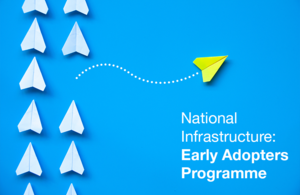Planning Inspectorate launches pre-application trial with 7 Nationally Significant Infrastructure Projects
The Planning Inspectorate is trialling potential components of a future enhanced pre-application service for National Infrastructure.

The Planning Inspectorate, in close collaboration with the Department for Levelling Up, Housing and Communities (DLUHC) and other government departments, is actively shaping future service offerings for the Nationally Significant Infrastructure Projects (NSIP) sector, as outlined in the NSIP Reform Action Plan.
In a news story dated 27 April 2023, the Planning Inspectorate launched a process inviting applicants to express interest in participating in a trial aimed at testing potential components of an enhanced pre-application service for Nationally Significant Infrastructure Projects (NSIP).
Which NSIPs are involved in the trials?
Following the invitation on 21 April 2023, the Inspectorate received responses from seven projects that expressed their interest in joining the Early Adopters Programme. The participating projects include:
Confirmation of their participation in the programme was sent to each of these projects on 15 June 2023.
Which potential components of a future enhanced pre-application are being trialled?
Each of the aforementioned projects will be trialling a minimum of three out of the following ten potential components for the enhanced pre-application service:
1. Use of Programme Planning (mandatory for all projects)
A Programme Plan, including all significant milestones and dependencies, is made publicly available by the applicant with changes communicated to the system promptly.
2. Use of Evidence Plans
An Evidence Plan process is engaged where there are complex/ numerous and substantial Habitats Regulations Assessment and/ or Environmental Impact Assessment issues, driven by the applicant with the Inspectorate in a facilitatory role.
3. Use of Issues Tracking
The tracking of issues at the pre-application stage maintained by the applicant in a way that is accessible to system, culminating in consensus about residual/ ongoing issues for the examination prior to submission of the application.
4. Use of Pre-application Principal Areas of Disagreement Summary Statements (PADSS)
PADSS developed by relevant stakeholders which record an individual stakeholder’s interpretation of the main areas of disagreement at the point the application is submitted, and indicating the potential impacts on the examination. See ‘What happens next?’ below concerning the potential impacts of this and other components on affected stakeholders.
5. Production of Policy Compliance Document (PCD)
A PCD is developed by the applicant to accompany the submitted application, setting out how the requirements of relevant National Policy Statement(s) and other relevant and important policies are satisfied.
6. Demonstrating regard to advice
The applicant to demonstrate in the submitted application how it has had regard to advice issued by the Inspectorate under section 51 of The Planning Act 2008 (PA2008) and other statutory advice issued by affected government agencies.
7. Production of Design Approach Document (DAD)
A DAD is developed by the applicant to accompany the application, in consultation with relevant consultees, setting out how the project satisfies design criteria in eg relevant National Policy Statement(s) and best practice guidance.
8. Production of mature outline control documents
Mature outline control documents (eg Construction Environmental Management Plan) are developed by the applicant, in consultation with relevant consultees, and provided with the submitted application.
9. Use of Advice log
The Inspectorate records all section 51 advice issued to the applicant in log form, as an alternative to narrative meeting notes. Updates are prompt and accessible to system.
10. Use of multiparty meetings
The use of multiparty meetings during pre-application to seek resolution of cross-interest issues or disagreements, driven by the applicant with the Inspectorate in a facilitatory role.
What happens next?
During July, the Inspectorate has scheduled meetings with each of the participating projects to discuss the development of the components indicated in their expressions of interest. Following these meetings it is expected that each applicant will proactively engage relevant stakeholders about how they may be affected by the Early Adopters Programme, establishing if anything new or different will be requested of them, and by when, in order that the components being trialled may be developed in an optimised way.
Applicants and affected stakeholders should note that participation in this trial is voluntary and non-statutory. The ability of relevant stakeholders to engage in the development of specific components forms an integral part of this trial, accounting for resource demand and competing priorities. Adhering to or producing any of the trial elements does not affect the separate statutory tests under section 55 of the Planning Act 2008, which determine whether the application will be accepted for examination.
Once the trials are completed, the Inspectorate will gather feedback on the extent to which the development of each component, individually or in combination, has contributed to an improved examination experience for the system.
Whether or not a project is involved in the Early Adopters Programme, we welcome and encourage receipt of any information in relation to any innovative approaches applicants are taking at the Pre-application stage with a view to making the consenting process smoother. Please discuss these with your allocated NSIP Case Team or provide details to nienquiries@planninginspectorate.gov.uk for the attention of NSIP Reform.